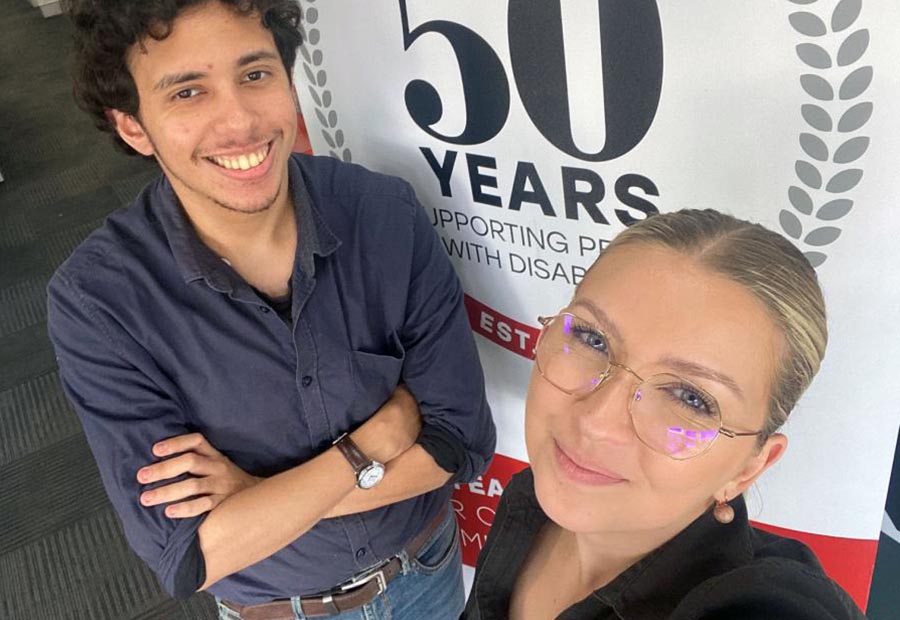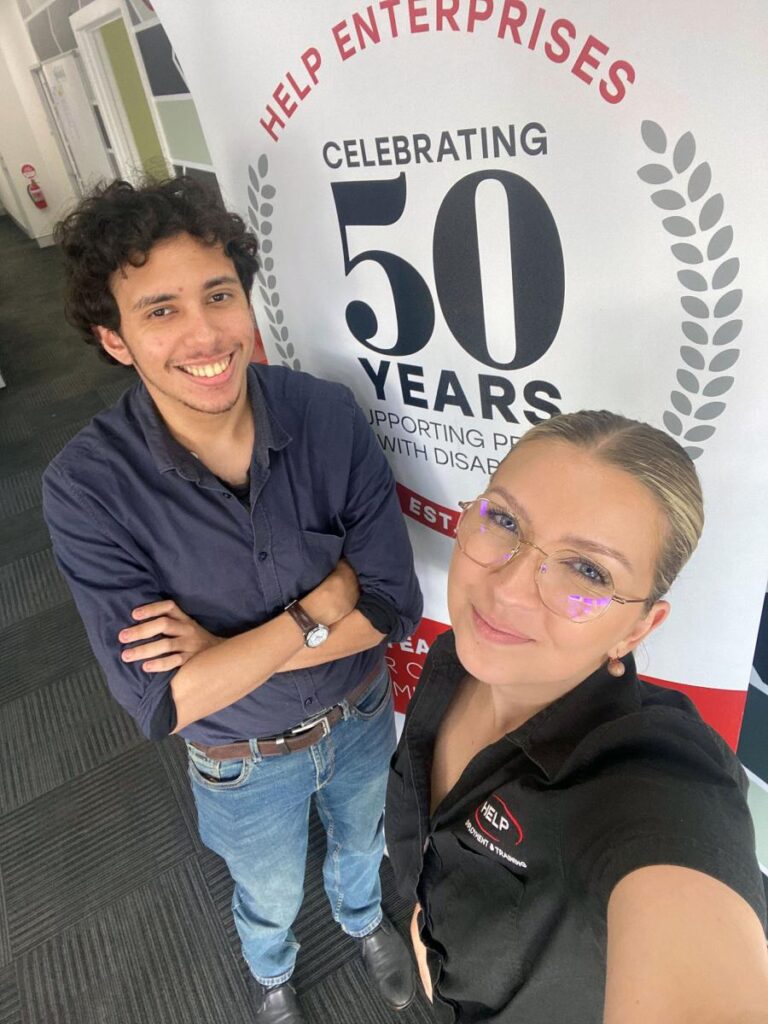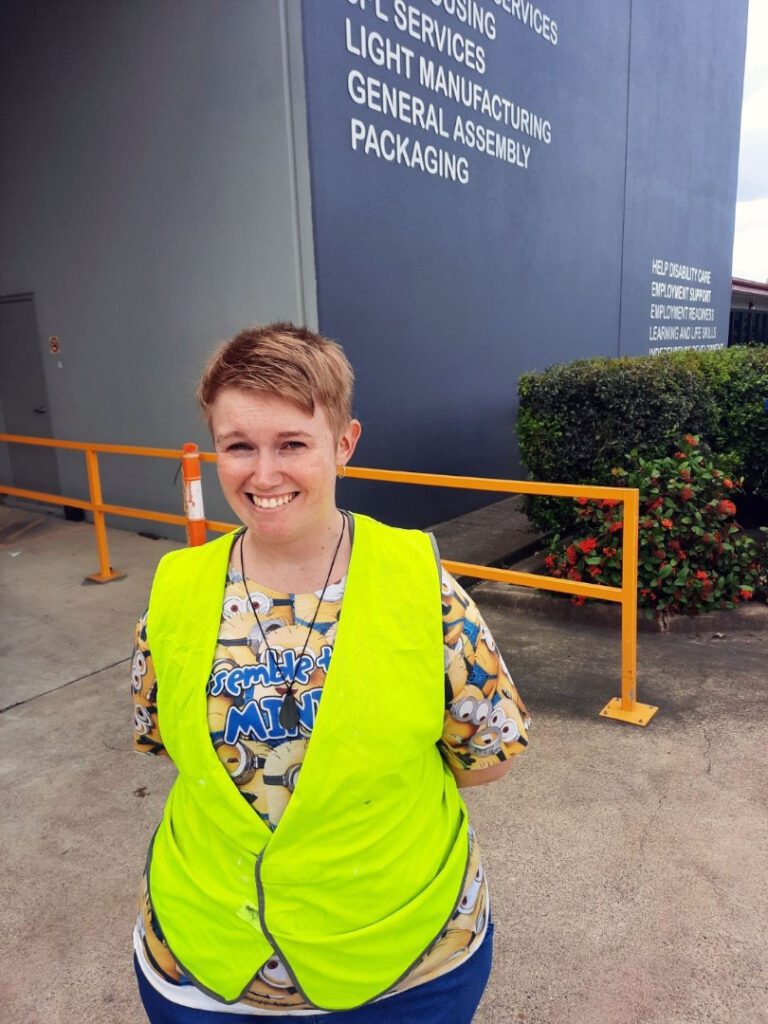News & Stories
Employment
Article
Resource
Finding A Job With Support
Success Stories
Transitioning From School To Work
27 February 2023
Autism and work: guide to finding a job for people with autism

It is estimated that 1 in 100 people in Australia have Autism.
If you’re on the autism spectrum or identify as a person with autism, looking for a job can be a challenging process. However, with the right strategies and support, you can find a job that fits your skills and interests.
Here are four tips to help you get started:
Know your strengths
It’s important to understand your strengths and how they apply in the workplace. This can help you identify potential careers that align with your skills and interests. You can also consider seeking out positions that accommodate your unique strengths, as well as your challenges.
To work out what type of job or industry you want to work in, think about what you enjoy doing, or what you’re good at. If you have a specific interest, you may have developed certain skills over time. For example, if you enjoy gaming or programming you may have a great knowledge of computers and IT systems. Once you’ve identified your strengths you can begin to seek out jobs or work experience opportunities that match.
Prepare for change
Many people with autism experience feelings of stress or anxiety when there are changes to their routine or environment so, it’s important to prepare for things like graduating from school, starting work experience, or changing jobs.
Making a plan for these transitions can not only reduce stress, but also build resilience and independence. When you plan ahead you give yourself time to adjust to new schedules, environments, and people. To help prepare you might do things like:
- make lists
- practice catching a different route on public transport
- make a timetable or daily planner, or,
- schedule reminders on your phone.
It’s also a good idea to have a support system around you when going through times of change so you can reach out for help when you need it. Family members, friends, career counsellors, and employment coaches are all people who can support you as you navigate your employment journey.
For more great tips on transition planning and preparing for change visit the Autism Tasmania website.
Seek support
There are many resources available to individuals with autism looking for employment. These can include job training programs, and assistance from employment agencies like HELP that specialise in helping individuals with autism find jobs.
HELP Coaches and In-Work Support Mentors are specially trained to support people with disability, including people with autism. They can help you build your confidence, develop your strengths, and work on important employment skills like communication, time management, and conflict resolution.
If you struggle with things like sensory issues, noise sensitivity, social anxiety, or have difficulty building relationships your HELP Coach can give you strategies to navigate these at work, and connect you with employers who understand your needs.
If you have specific challenges in the workplace, and you receive a job offer, talk to your employer about reasonable adjustments. Reasonable adjustments are small changes that can be made in the workplace that help you do your job. Adjustments can include anything from creating a quiet workspace to additional training.
Consider alternative pathways to employment
Disability employment providers like HELP can assist job seekers with autism to ensure they find a job.
Getting a job is not always straightforward and sometimes it can be helpful to look at alternative options to help you enter the world of employment. HELP offers a number of pre-employment programs and supported employment options for people with disability. These programs can help people with autism gain experience, decide which type of job they like, and understand what steps they need to take to get a job in their chosen field.
Find out more about our employment services for people with autism below:
Lachlan and Kylie identify as people with autism and have both found employment with the support of HELP.

22 year old Lachlan has been a Crew Member at McDonalds for 7 months now. Initially, he struggled to find a long-term job after high school but soon found his niche.
Lachlan now has a variety of duties at work (including food prep, cooking, cleaning, and stock preparation), and has found a new lease on life.
He said, “I love working with people my age who also understand me and help me feel comfortable. I like socialising with my co-workers while doing our tasks as it also makes work more fun.”
“[I’ve also been able to] save enough money to buy my first car and buy my family Christmas present for the first time.”
Working with his HELP Coach Lauryn, Lachlan has learned how to navigate workplace conflict, improved his numeracy and literacy skills, and built a new routine to assist with his mental health and performance at work.
Lachlan says he feels less anxious and depressed and is more active (with a lot more energy!). He’s even started going to the gym and getting out more to socialise with friends. He’s really proud of what he has achieved over the past few months and how he has adjusted to his new role.
“I have been let go from other jobs before due to my learning difficulties and being “slow” but I am really proud of myself for getting my tasks and duties done by the end of my shift and not being slow anymore.”
His advice to other people with autism looking for work is to “keep on trying”.
“I have been let go from jobs due to my learning difficulties and Autism which has knocked my confidence but if I didn’t keep trying, I wouldn’t have my job now or have been able to save money for a car. [My advice] is to work closely with your Coach who is there to help you and be supportive.”
Kylie is a part of HELP’s Supported Employment team and has been working in our Supply Chain division since 2015.
Much like Lachlan, Kylie was unsure which direction to take after graduating high school. Kylie found that supported employment was the right option for her as it provided the right environment and level of support to suit her needs.
Kylie says the best part of the job is earning your own income so you can be more independent and do things like pay rent.
Having a job also gives Kylie a sense of satisfaction and belonging. She has many friends from across HELP and feels happy when she sees that all her hard work packing chips and moving stock with the palette jack, have paid off.
In the future, Kylie would like to expand her horizons and explore a career with animals. She hopes that more people come to understand autism and that it’s ok to be different.

With these tips, you can increase your chances of finding a job that fits your skills and interests. Remember to be patient and persistent, and don’t be afraid to ask for help when you need it. With the right resources and strategies, you can find a job where you can thrive and succeed.
If you’d like support to find a job visit our website, or call 1800 877 545 to chat with our friendly team.
We’re here to help!
Our Locations
With over 40 locations across Southeast Queensland, we’re nearby for when you need us.
Find your nearest locationGive us a call and one of our friendly team members will be in touch shortly
We’re here to help!
Our Locations
With over 40 locations across Southeast Queensland, we’re nearby for when you need us.
Find your nearest location